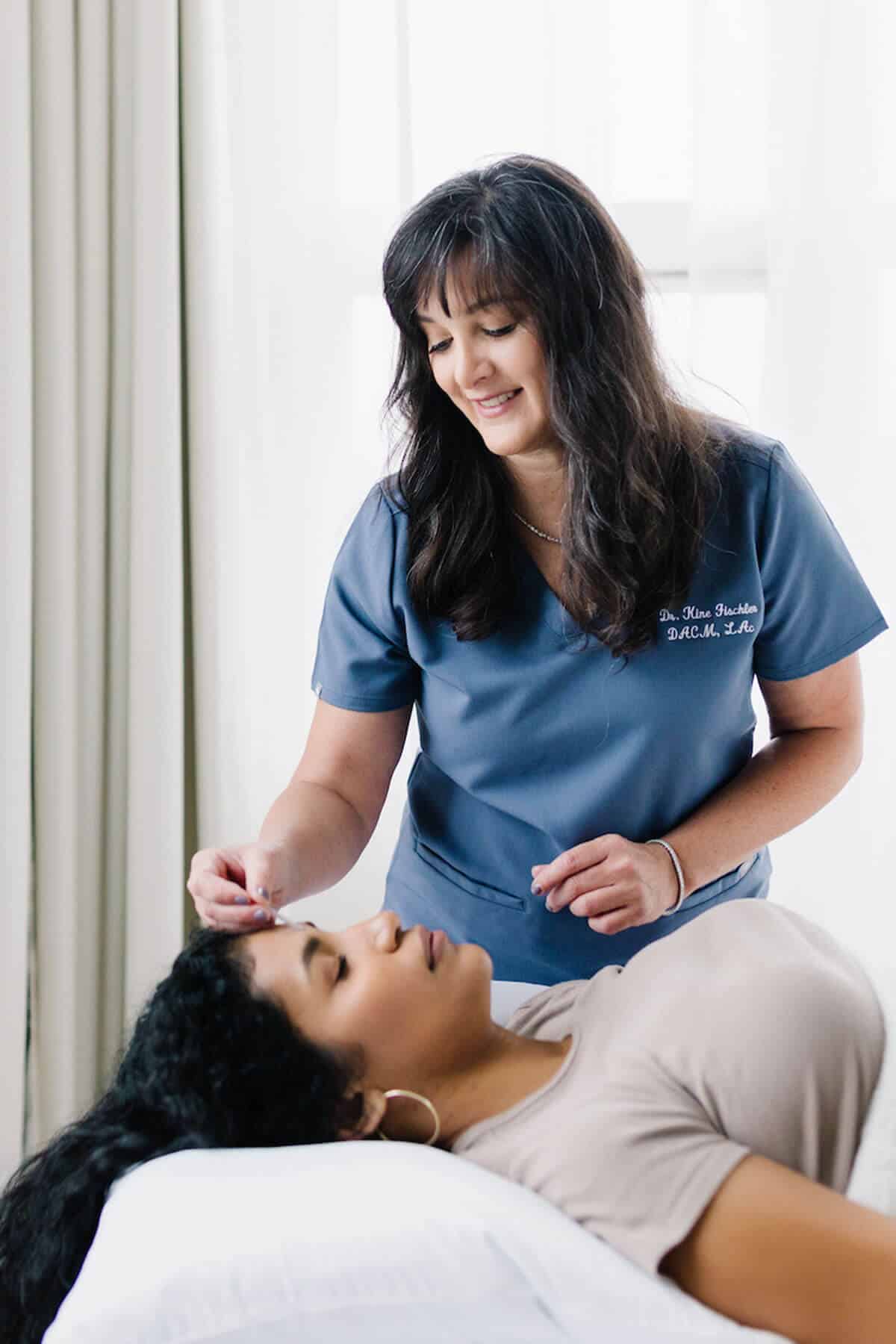
If you’re living with TMJ disorder, you know how annoying it is to live with jaw pain, clicking, and tension headaches. It can make simple tasks—like eating, speaking, or even yawning—uncomfortable and painful. TMJ also ends up affecting more than just your jaw; it can trigger pain in the ears, neck, and head as well.
Many people with TMJ look for relief through mouth guards, physical therapy, or even medication. But there’s another natural and effective approach: acupuncture for TMJ.
At Willow Tree Clinic, we’ve been able to help patients find relief from chronic jaw tension, pain, and headaches due to TMJ (among many other ailments!). Acupuncture is a gentle, non-invasive treatment that helps relax your muscles, reduce inflammation, and restore balance (which is exactly what your body needs when dealing with TMJ discomfort).
Read on to learn more about how acupuncture can help you ease your TMJ pain naturally. If you’re ready to get more support, book a consultation today to learn more about our services.
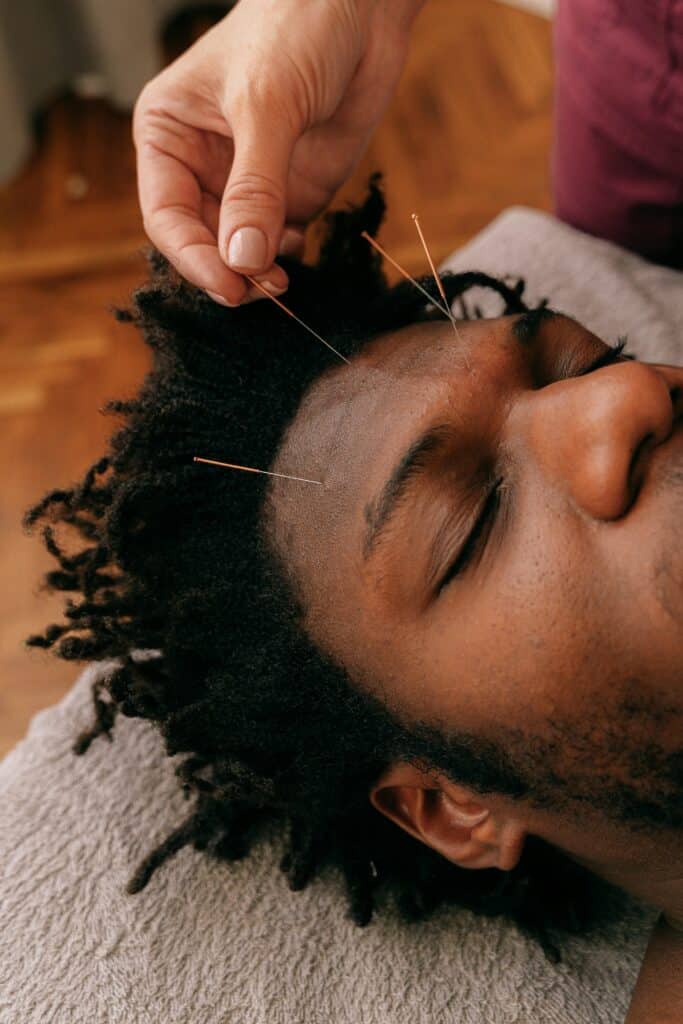
Understanding TMJ Disorder
Temporomandibular joint (TMJ) disorder affects the joint that connects your lower jaw to your skull. When something goes wrong—whether due to stress, teeth grinding, injury, or misalignment—this joint can become inflamed, tight, or even locked.
Common TMJ symptoms include:
- Jaw pain (especially when chewing or talking)
- Clicking or popping in the jaw joint
- Tension headaches or migraines
- Ear pain or pressure
- Neck and shoulder tightness
TMJ issues are often tied to stress and muscle tension. So many of us clench our jaws throughout the day or grind our teeth at night without even realizing it. Over time, this creates tightness in the jaw muscles, leading to ongoing pain and discomfort.
How Acupuncture Eases TMJ Symptoms
Acupuncture has been used for centuries to relieve pain, reduce inflammation, and promote relaxation. When it comes to acupuncture for TMJ, it works in several ways:
- Releasing tension: Tiny needles placed at strategic points encourage tight jaw and neck muscles to relax, which is crucial for easing pain and stiffness.
- Reducing inflammation: Acupuncture stimulates circulation and helps reduce swelling in the jaw joint.
- Encouraging natural pain relief: Acupuncture triggers the release of endorphins (your body’s natural painkillers), offering lasting relief without medication.
- Supporting nervous system balance: Many TMJ issues are stress-related. Acupuncture helps calm the nervous system, reducing stress and preventing jaw clenching.
Patients often notice improvement after just a few sessions, especially when acupuncture is combined with other self-care techniques (like stress management and gentle jaw exercises at home).
Acupuncture Points for TMJ Relief
At Willow Tree Clinic, we customize our acupuncture for TMJ treatment based on our patients’ unique needs, but certain acupuncture points are particularly helpful for TMJ pain and tension:
- ST6 (Jiache) – Located on the jawline, this point helps relax the masseter muscle, which is often tight in TMJ patients.
- ST7 (Xiaguan) – Near the TMJ joint itself, this point improves jaw mobility and reduces pain.
- LI4 (Hegu) – Found on the hand, this point is widely used for pain relief and tension reduction (especially helpful for headaches and facial pain).
- GB20 (Fengchi) – Located at the base of the skull, this point helps relieve neck tension, headaches, and stress-related jaw clenching.
By targeting acupoints near the jaw with points on the hands and feet, acupuncture encourages full-body balance and lasting pain relief.
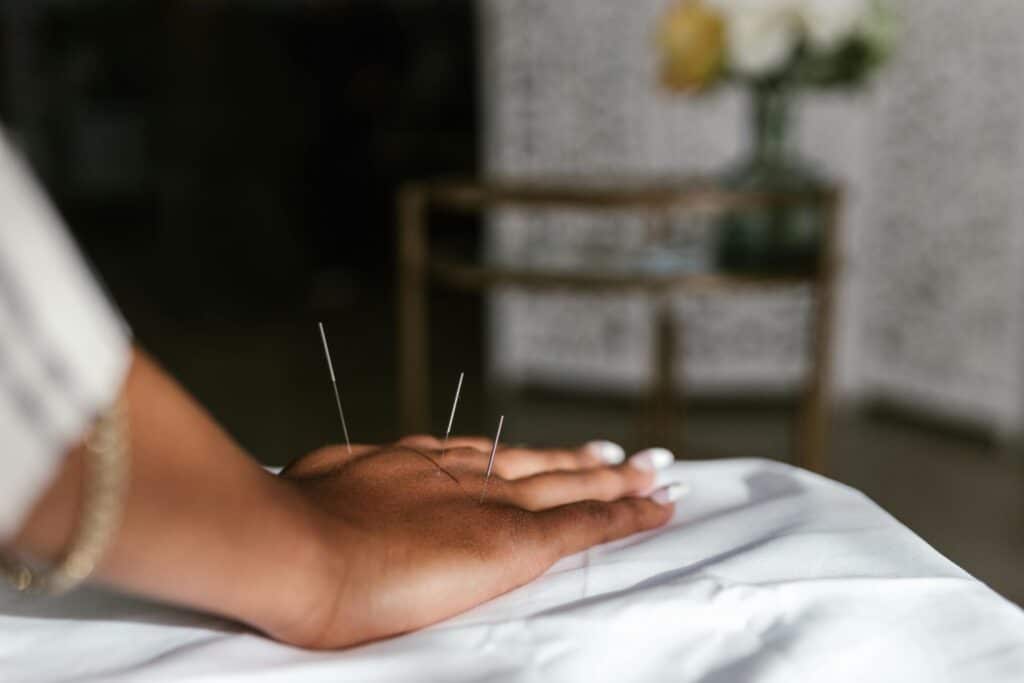
Complementary Benefits of Acupuncture for TMJ
Beyond relieving jaw pain, acupuncture offers additional benefits that help address the root causes of TMJ discomfort.
- Reduces stress: TMJ symptoms often flare up due to stress and anxiety. Acupuncture has a calming effect on the nervous system, helping you feel more relaxed (which means less jaw clenching and fewer headaches).
- Improves sleep: Many people with TMJ grind their teeth at night, making symptoms worse. Acupuncture for TMJ promotes deeper, more restful sleep—without the need for sleep aids.
- Supports digestion: Believe it or not, jaw tension and digestive health are connected. Acupuncture helps regulate the digestive system, which can reduce inflammation and overall muscle tension.
- Enhances circulation: Better blood flow means faster healing and reduced inflammation in the jaw joint.
What to Expect from Acupuncture for TMJ
Most of our patients say that their acupuncture for TMJ sessions are gentle and relaxing. The needles are thin and painless, and each session typically lasts between 30-60 minutes. Some people notice immediate relief, while others experience gradual improvements over a series of treatments.
Our licensed acupuncturists will be there with you every step of the way to guide you through the process. You don’t need to worry about pain or discomfort–the needles are so thin and aren’t inserted deep into your skin. In fact, many patients fall asleep for a little while after the needles are inserted. It’s a great time to fully relax and experience some peace in your busy day.
We often recommend a series of sessions to fully address TMJ symptoms. Acupuncture also works best as part of a holistic approach, including stress management, jaw exercises, and posture awareness.
Find Lasting Relief Naturally
If TMJ pain is interfering with your daily life, acupuncture offers a natural, effective way to finally ease tension, reduce pain, and restore balance. Instead of masking symptoms with medication, acupuncture works with your body’s natural healing abilities to bring lasting relief.
If you’re ready to explore acupuncture for TMJ relief, we’d love to help! Book a consultation with us and start feeling better today.
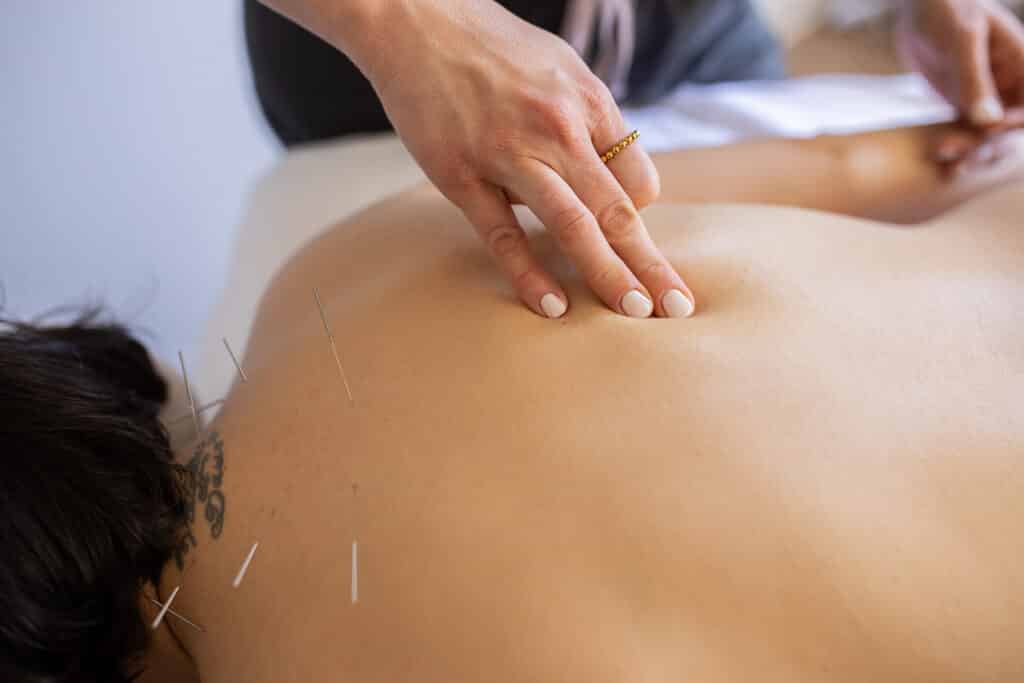
Dry Needling vs Acupuncture: What You Need to Know
When it comes to dry needling vs acupuncture, the conversation often misses a critical point: dry needling is actually trigger point acupuncture, performed without full acupuncture training. While both use needles, the level of education, safety standards, and treatment approach are very different. This article breaks down the real differences, explains why credentials matter, and highlights how acupuncture can be both highly effective and gentle when done by properly trained professionals.

Acupuncture for Hashimoto’s: How It Helps Calm Your Immune System and Support Your Thyroid
Hashimoto’s isn’t just a thyroid issue. It can affect sleep, mood, digestion, cycles, and energy. At Willow Tree Clinic, our Portland OR acupuncture care supports the nervous system and helps settle immune overdrive, so symptoms feel more manageable. We pair acupuncture for Hashimoto’s with practical nutrition and, when needed, customized herbal support for steady, whole-body progress that fits real life.
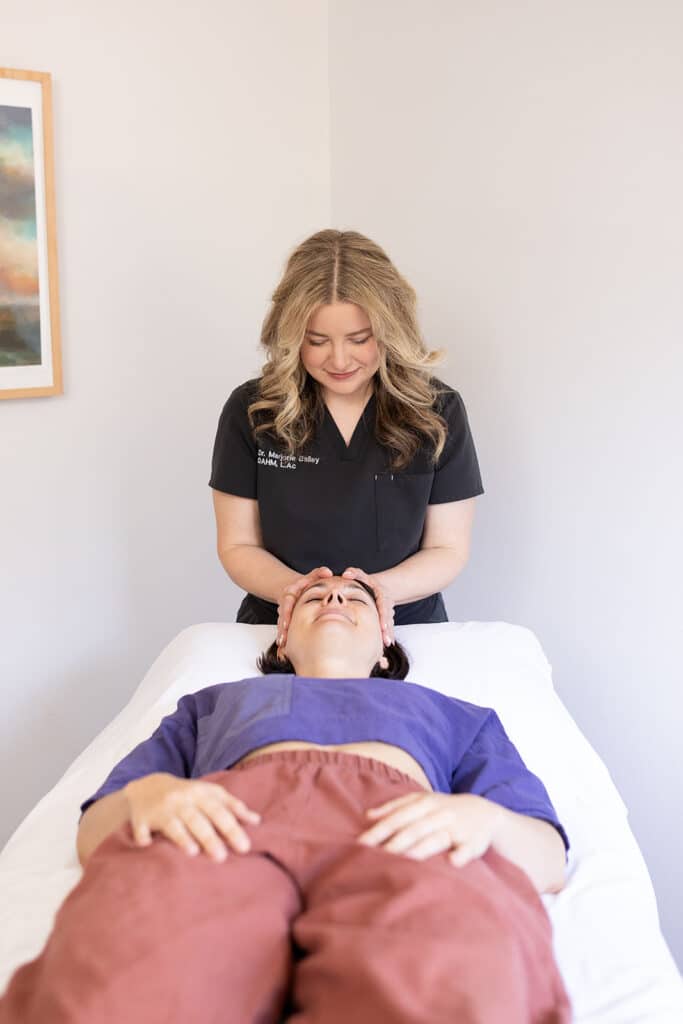
Acupuncture for Pinched Nerve Pain: Natural Relief Without Medication
A pinched nerve can feel like your body’s hitting a limit. Numbness, tingling, or even sharp, burning pain that just won’t let up. Whether it’s
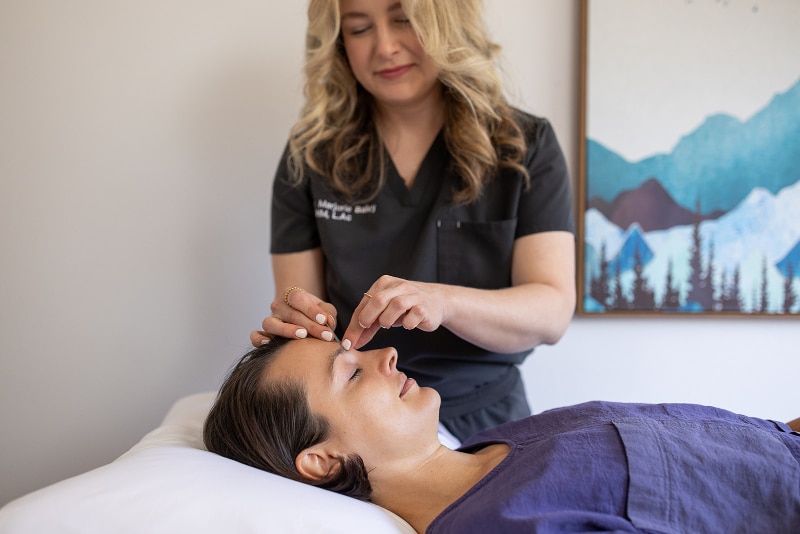
Acupuncture and Cancer: How We Help You Feel Like Yourself Again
When you’re going through cancer treatment, it can feel like everything in your life has been flipped upside down. Not just your body, but your

What Causes Sciatic Nerve Pain and How Acupuncture Can Help
If you’ve ever felt a sharp, radiating pain that travels from your lower back down your leg, you’re not alone. Sciatic nerve pain is incredibly

Tune-Up Acupuncture: Why Fall Is the Perfect Time to Reset Your Health
If you’ve ever felt a little off as the seasons change (maybe more tired, more tense, or more moody than usual) you’re not alone. This
